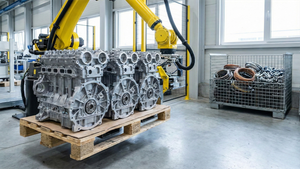Sustainability, Why It Makes Business Sense - A Discussion With Students From the University Of St. Gallen
SOURCE: Musim Mas
DESCRIPTION:
By Devane Sharma
With the growing awareness of issues such as climate change, biodiversity loss, pollution flows and topics like social justice, sustainability moves into the central focus of businesses and regulators around the world. Universities are adding modules and embedding sustainability into their curriculums. One such module is the University of St.Gallen’s (Switzerland) Asia Compact course on “Sustainability in Singapore and Southeast Asia, part of the Masters of General Management program.
The course takes place over an intensive week at the St.Gallen Institute of Management’s satellite campus in Singapore. The students focus on social and environmental sustainability across key industries in the Southeast Asia region, to discuss sustainability challenges, opportunities, and solutions for business and supply chain management.
On the 14TH of April, the 2022 cohort heard perspectives from Dr. Janice Lee of the Nanyang Technological University on Sustainability in the Palm Oil Industry, and Carolyn Lim, Senior Manager, Corporate Communications at Musim Mas on an industry perspective. Here are three key questions that emerged from the session.
Why Does Musim Mas Place Such a Strong Emphasis on Supporting Smallholders?
Independent smallholder farmers manage over 40% or 4.2 million hectares of oil palm plantations in Indonesia. Roughly, this represents an area similar to size to that of Switzerland, but the plantations are more geographically dispersed around the vast Indonesian archipelago. This makes it harder to access these farmers to provide them with knowledge and resources.
Smallholder farmers may lack access to land deeds and hence finance, e.g., for fertilizers. They also tend to lack agricultural knowledge and consequently tend to have lower yields than industrial plantations. Through Musim Mas’ Smallholder program, we help them improve output. This includes smallholders that do not necessarily supply to us. With the industry producing more, we help relieve land-use pressures to meet the world’s vegetable oil demand. The farmers themselves will also gain improved livelihoods with as their yields improve.
Why Would a Business, Like Musim Mas, Bother About Sustainability?
Being a sustainable palm company makes business sense. Having NGOs such as Earthqualizer and the Radar for Detecting Deforestation (RADD) assess our plantations has enabled us to achieve externally verified 100% traceability-to-plantation for all our mills. As a result, we prove to regulators and companies that buy from us that we are committed to our No Deforestation Peat and Exploitation (NDPE) policy. Therefore, looking at it in a purely business sense, sustainability can be seen as a risk-mitigation tool that also provides a value-add to a business’ value proposition.
Another example of how being sustainable has benefited us is our methane captures. Methane is a greenhouse gas that is more than 25 times as potent as Carbon Dioxide in trapping heat in the atmosphere. Our mills are fitted with methane captures which, in 2020, avoided the release of over 500,000 MT Carbon Dioxide equivalent or CO2e. We then harnessed the methane to produce electricity for our mills. The excess, a whopping 32 million kWh, was exported to the national grid. Having methane captures installed enabled us to demonstrate that we meet environmental commitments and therefore be able to produce biodiesels for European markets.
What then Needs to Be Done to Help Improve Sustainability Across the Industry?
Collaboration and cooperation are essential. Musim Mas supports the Indonesian government initiatives to improve smallholder livelihoods, and that is why we expanded our outreach to a district level. To that end, we run smallholder hubs where we provide training for government agricultural extension officers on a train-they-trainer basis so they can then reach even more smallholders.
We also collaborate with downstream companies in the supply chain such as Nestle and AAK, NGOs such as the Southeast Asia Rainforest Research Partnership (SEARRP), and academia such as ETH Zurich, among others.
KEYWORDS: Musim Mas, University of St.Gallen, smallholders



More News
View More




Recent Quotes
View More
Quotes delayed at least 20 minutes.
By accessing this page, you agree to the Privacy Policy and Terms Of Service.